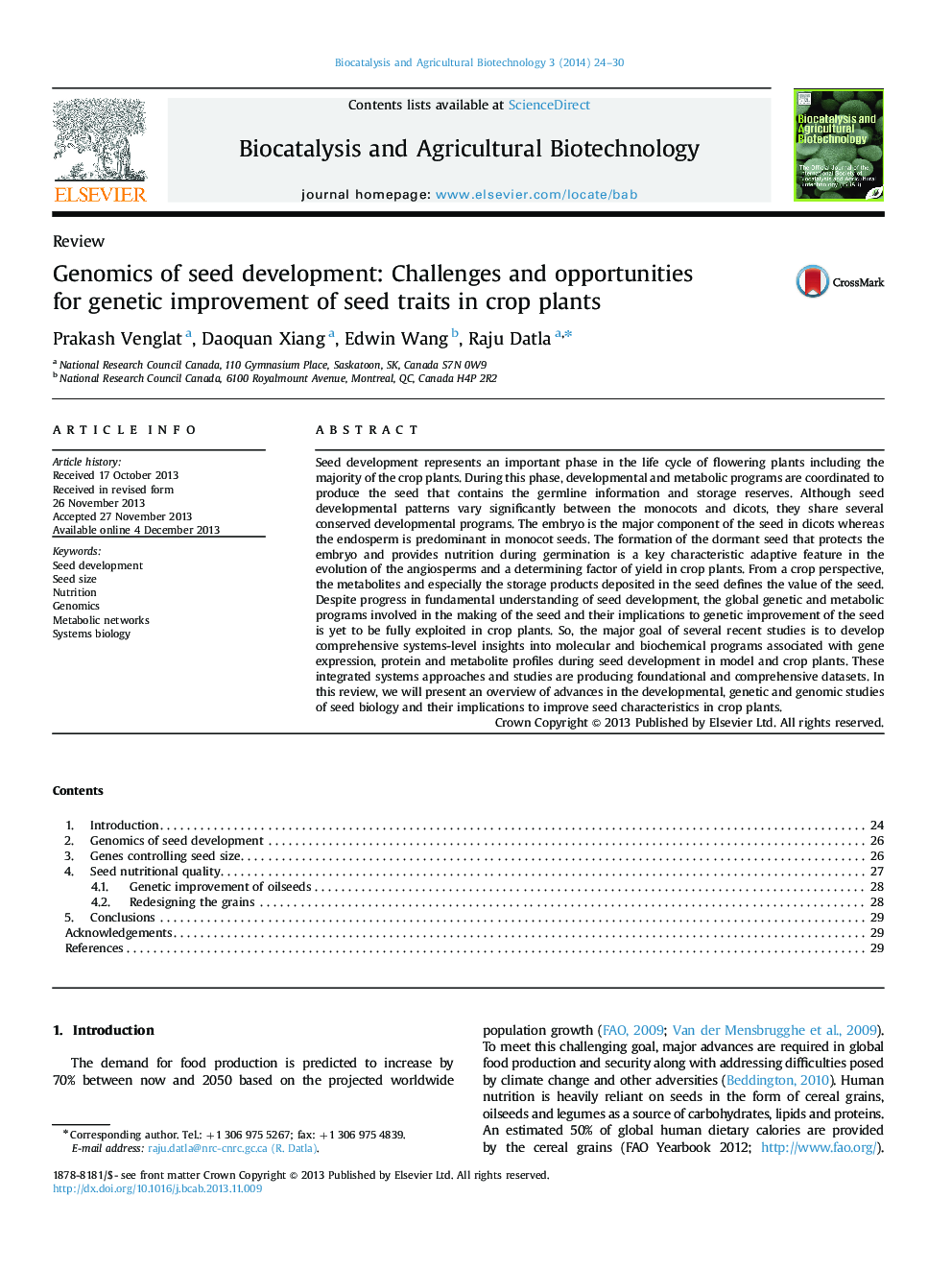| Article ID | Journal | Published Year | Pages | File Type |
|---|---|---|---|---|
| 10884459 | Biocatalysis and Agricultural Biotechnology | 2014 | 7 Pages |
Abstract
Seed development represents an important phase in the life cycle of flowering plants including the majority of the crop plants. During this phase, developmental and metabolic programs are coordinated to produce the seed that contains the germline information and storage reserves. Although seed developmental patterns vary significantly between the monocots and dicots, they share several conserved developmental programs. The embryo is the major component of the seed in dicots whereas the endosperm is predominant in monocot seeds. The formation of the dormant seed that protects the embryo and provides nutrition during germination is a key characteristic adaptive feature in the evolution of the angiosperms and a determining factor of yield in crop plants. From a crop perspective, the metabolites and especially the storage products deposited in the seed defines the value of the seed. Despite progress in fundamental understanding of seed development, the global genetic and metabolic programs involved in the making of the seed and their implications to genetic improvement of the seed is yet to be fully exploited in crop plants. So, the major goal of several recent studies is to develop comprehensive systems-level insights into molecular and biochemical programs associated with gene expression, protein and metabolite profiles during seed development in model and crop plants. These integrated systems approaches and studies are producing foundational and comprehensive datasets. In this review, we will present an overview of advances in the developmental, genetic and genomic studies of seed biology and their implications to improve seed characteristics in crop plants.
Related Topics
Life Sciences
Agricultural and Biological Sciences
Agricultural and Biological Sciences (General)
Authors
Prakash Venglat, Daoquan Xiang, Edwin Wang, Raju Datla,
